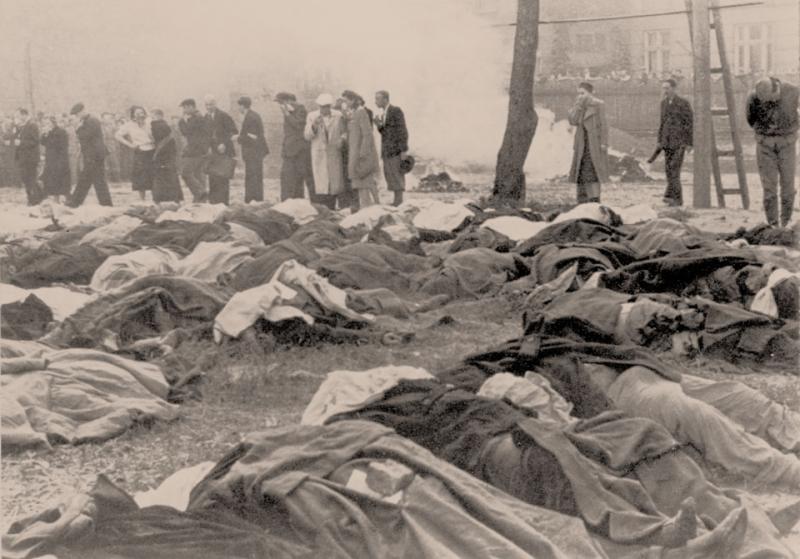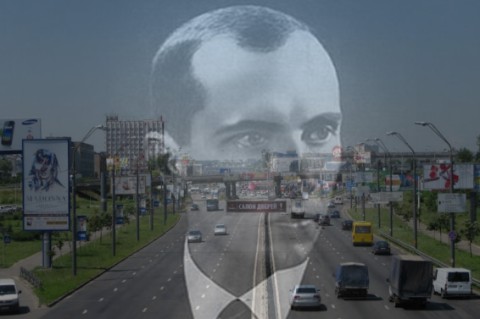Professor Andrey Zubov was one of the two speakers from Russia at the 10th Kyiv Security Forum which took place on 6-7 April in the Ukrainian capital. He started his talk in the panel discussion on "Russia's everlasting strategy for the neverending war" with a public apology for the things his country did to Ukraine, which was met with a round of applause. Back at home, he suffered for his stance, having been fired from his position of at the Moscow State University of International Affairs.
Representing "another Russia," he claimed he's not the only one.
After Germany went through the 4D's after World War II, denazification, demilitarization, decartelization, and democratization, it became another country, without which it's impossible to imagine the EU and NATO. The same thing must happen with Russia, said prof. Zubov:
"Many people say is Russia is a permanently aggressive country, but this is a mistake, a romantic mistake of the XIX century. We have no permanently liberal or permanently aggressive countries. We have aggressive regimes but not aggressive nations. And Putin’s regime is terribly aggressive, more than Kaiser's aggression in Germany. But I’m sure that if we Russians are able to change this regime, Russia will change in its international and domestic politics. We’ll have another Russia, just as we have another Germany. A Russia which will have good relations with the EU and other countries. It was impossible once to imagine how Germany would have good relations with France and Poland, but now it is so."
To change the regime, Russia needs demilitarization and deputinization, as Putin continues the KGB-based Soviet and totalitarian mentality, prof. Zubov said, as well as to struggle against the communist mentality. The PARNAS party of which he is a member produced a memo on systematic decommunization. Like many other Russians, he hopes that:
"we will have another Russia, a center of peace and stability. But not the center of aggression and everlasting war."
Euromaidan Press met with prof. Zubov to discuss the Russian opposition, decommunization, historical memory, and totalitarianism.
On the Russian opposition
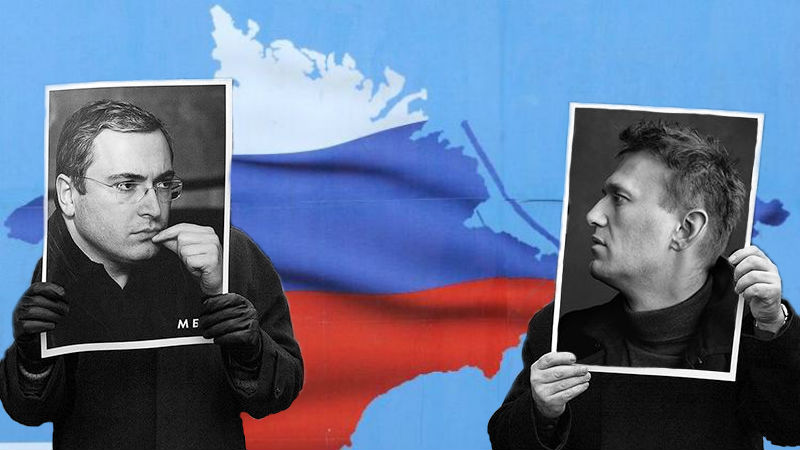
Ukrainians nowadays are skeptical of the Russian opposition - after all, popular opposition politicians like Navalny and Khodorkovsky de facto endorsed Russia's occupation of Crimea.
Not all Russian opposition politicians had done this. Yavlinsky [Chairman of Yabloko] and Kasyanov [leader of PARNAS], the leaders of the only opposition parties which take part in parliamentary elections, had rejected the occupation of Crimea. It's regrettable that Navalny and Khodorkovsky continue repeating that "Crimea is Russian," and I have personally told them that it's their great mistake.
Read also: Russia’s opposition unites to defeat Putin. Maxim Katz explains who’s who
So why do they continue repeating it?
Because they are populists. They try to guide themselves based on what the majority thinks and delude themselves because it believes Putin's propaganda.
Conrad Adenauer, Germany's first post-war chancellor, was like that. It's hard being such a politician, but only these politicians get thanked afterward in the history of their own people. And our parties, PARNAS and Yabloko, take a responsibility towards our mission which is why we don't follow the people but together with the reasonable part of the people try to explain.
You mentioned that Putin's regime today exceeds Hitler's regime.
I never said that. I said that Putin resembles the regime of Mussolini, the fascist regime. Because the Nazi regime with its regime of racist policies is not common for Russia. We don't have racism, but we do have a corporate state, a fascia. However, elements of Hebbel's propaganda and aggressiveness [common to Hitler's regime] are undoubtedly present. For Hitler, however, power was not the goal, but a false image of the greatness of Germany. He was the person of an idea, however vile it was.
On decommunization
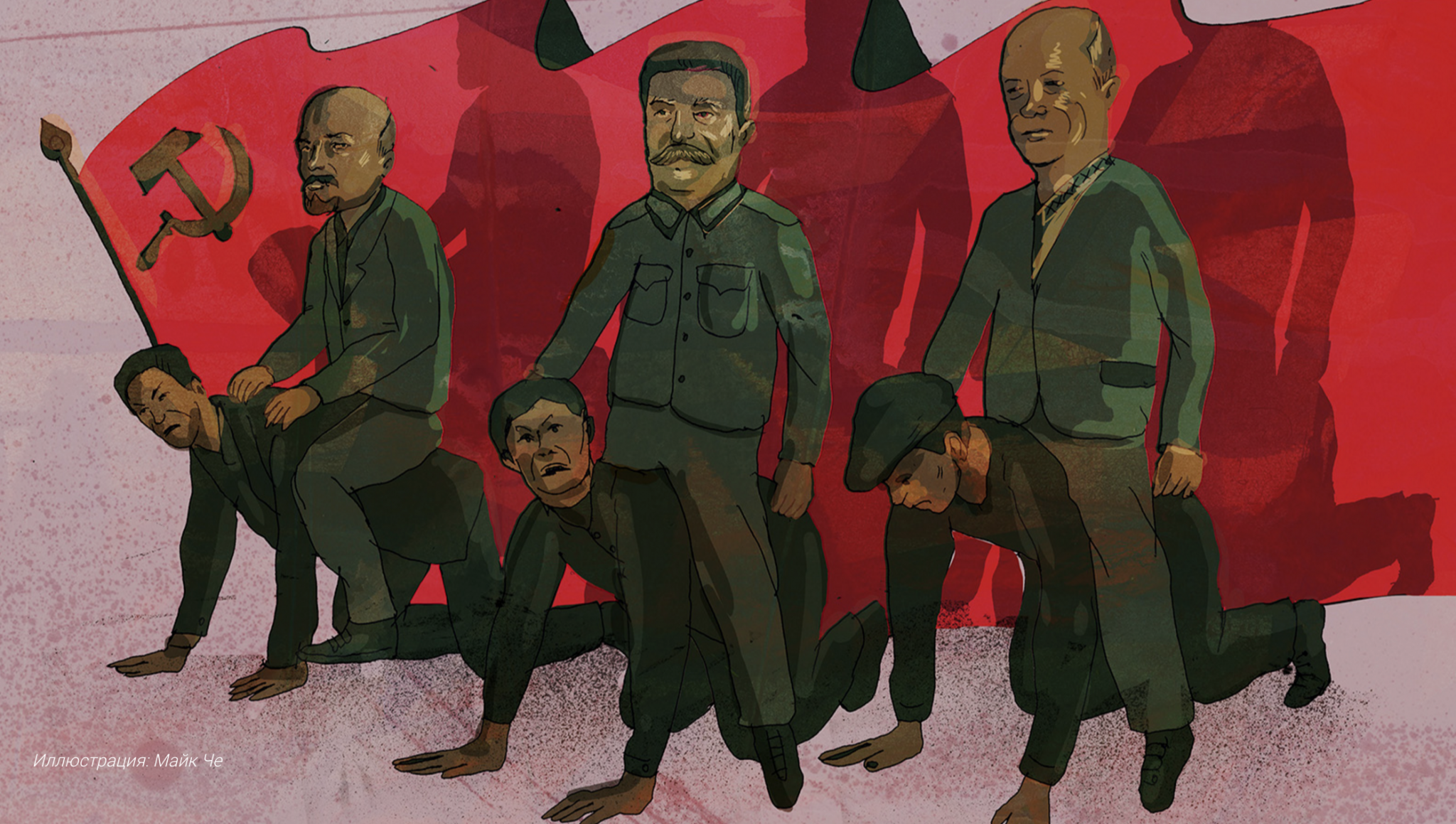
What must happen before the post-Soviet countries will be able to establish a society, the "highest goal of which is the fate of the person," as you wrote in the preface of your book "History of Russia. XX ct"?
Up to WWII, all of Europe basically live in the paradigm where a person is a means to glorify the state, the nation. Afterward, this way of thinking was abandoned, but not by Russia. I won't say anything about you, Ukrainians - you need to decide for yourself. But Russia and Belarus continue to live in the paradigm where a person is the means, and the state is the goal. We need to refuse this. I think that the countries who started their European development, the ones that implemented systemic decommunization, starting from the Baltic countries and ending with Serbia and Montenegro right now, even Albania, where they in 2015 declared the restitution of property rights, have institutionally embarked on this path.
Property rights are of utmost importance. Right now people tend to forget that decommunization is not about taking down Lenin monuments. That needs to be done too, but it's the mushroom, not the mycelium. And the mycelium is property rights. Communism led to the destruction of the right to private property. All the countries in Europe conducted a restitution of property rights and returned it to the descendants of the owners, by this laying the foundation for democracy. Where this was not conducted, there are no grounds for democracy and respect for the individual. And this has been done neither in Ukraine nor in Russia.

We do have a decommunization program...
But you are not carrying out any restitution of property rights, not even in the places where it should be very easy to do, in the western Ukrainian regions where they were violated only in 1940. But I don't want to be a teacher here. I don't have a right, many Russians come to Ukraine and start teaching, which irritates Ukrainians.
Read also: Whose names disappeared from the map of Ukraine? Interactive decommunization map
Nonetheless, please tell your opinion. How do you view our decommunization processes?
I think that all the post-Soviet countries should conduct systemic decommunization, which includes not only symbolic decommunization.
In Russia, they govern the country. If we had adopted the law on lustration in 1991, Putin would not have come to power. He would not have been able to, institutionally, ever, as a KGB colonel. And we wouldn't have people that would oppose the new [post-Soviet] regime so much because they would have received something [from the restitution]. Everybody received freedom, but ordinary people don't really need freedom, they don't understand and feel it. Ordinary people need property rights. The Czechs received property that their grandfathers possessed - some received shops, peasants received the land that was nationalized, sometimes land within city limits that is now worth a lot. So when the left came to power, they didn't gather the guts to nationalize property a second time, and in four years they lost.
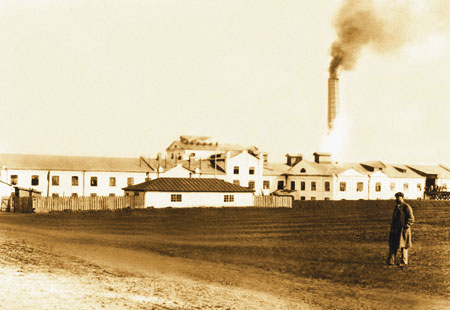
We should not accept the confiscation of property. If we do recognize it as a fait accompli, then we recognize the regime that carried it out, and it's nonsensical to tear down Lenin monuments because we are today using the fruit of what he accomplished.
He took it all, we divided the property between ourselves, and now we demolish the monuments? Then it's more logical to do like Putin - leave the monuments to Lenin, like the Mausoleum - because the [Russian elite] today are the inheritors of his regime. Not in the sense of ideas, but in the sense of property.
Read also: Communist crimes against Ukrainians give them many reasons to ban Communist party
You mentioned that people are given freedom and they don't need it. Why is it valued so little in post-Soviet countries? Do they fear it?
No. We people of intellectual professions have our brains as our property, and nobody will take them away from us. And the freedom which we are granted, the freedom to think and express ourselves, will allow us to better realize our intellectual freedom - and right now the concept of "intellectual property" and cultural capital is trending in the West. We can even live pretty well without material property, by selling our brains, but it's important to have the freedom to realize this. The majority of people don't have this capital and lives in the categories of material capital. So if this last capital isn't returned to them, they continue being proletarians just as they were in bolshevik times. So what was this [independence] all for? Living standards became even worse than in Soviet times. So when Central Europe decided to make democratic changes irreversible, they started from restitution. And when anti-Communists won in Serbia in 2011, they adopted the law on restitution of property rights, and in Albania - in 2015. But this step is unavoidable, without it authoritarianism will return like we have in Russia, or the power of the oligarchs like you have in Ukraine.
Returning to the topic of freedom, we see that many post-USSR countries return to authoritarianism. Are you saying that the only reason for this is unrestituted property rights?
In many ways, yes. Which countries didn't return to authoritarianism? The three Baltic countries, which carried out a proper restitution of property rights.
No, you are really saying that this is the one factor?
You must understand what Communism is. Communism is the communization of property, just like socialism is the socialization of property. This is extremely important because a person with property is independent, with an income which is not dependent on the government. He can be a citizen, a member of a local self-governing community. He can be a politician.
When a person lives on the money of the government or the oligarch, he is not free. He is a lumpen that does what his employer tells him to. Of course, there are exceptions, heroes, especially among the intellectuals. But there are not many of them. Imagine if someone in a car with a "down with Putin" sign comes to some Russian village, and the grannies tell him: "What do you mean, down with Putin? He pays us our pensions. How will we live without him?" This is what the absence of property means.
A person that has an independent income - from his land, from stocks, from work, from using his head - he is independent. He doesn't need any Putin, he is confident in himself. This is why we can't establish self-governance - because people that don't have any real property, real estate, business on their land can't govern themselves. Of course, they will be governed by the person who has all this. Some people say that Ukrainians are freedom-loving, and Russians are not. It's all nonsense. Does this mean that Belarusians are not freedom-loving, and Czechs were not before their independence? Why did they all change in one moment?
But much of the property owned before 1917 was gained through unfair means...
Property is always a problem. But we either recognize laws or we don't. In Great Britain, property was gained through unfair means, and the colonial conquests, and slavery in the USA. But if it was done in a lawful manner - the liberation of slaves, expansion of worker's rights - then it was recognized. No country in Europe took the path of a full confiscation of property. Even the Nazis, they retained symbolical property rights, although the owners were paid only 5% from the profits. This is why they didn't have any problems with restitution while carrying out denazification. And Communists did it. It was unheard of before. Take Roman law, where property is the external body of a person. Like chopping off an arm of a person is a grave crime, taking away his property is a crime no better than severing a person's limb. How else? It's just blocked from our consciousness. So we speak about freedom without acknowledging its material substrate.
On when Russia will let Ukraine go

Why is Ukraine so important for Russia?
Ukraine will always be important for Russia because we are neighbors. Like Mexico for the USA, which turned out to be one of the main issues in Trump's electoral campaign. I think that there are Russians that don't consider Ukrainians as a separate nation, the Ukrainian language as a separate language, just as there were people in Britain that didn't consider the Irish as a nation.
But Russia's preoccupation with Ukraine is of a different degree...
Well, Ireland had a very difficult war for independence. The British had to comprehend that the Irish are a different people. People died for an independent Ireland while speaking English; and the number of people who speak Irish is miserable in Ireland, there are many more Ukrainians speaking Ukrainian in Ukraine. The national feelings are most important, and Ukraine has them in quantities which are much more than there were 20-30 years ago, in many ways thanks to the war.
And I think that Russians will get used to this just like the British did. I am one of the people who would have been a supporter of Irish independence in Britain, and I stand in solidarity with Ukraine. I think that in time Russians will get used to the idea that Ukrainians and Russians are different nations, different ethnoses, and each is free to choose a path for national development.
So the main thing is Russia's non-recognition of Ukraine having a right to its own path of development?
Many people don't give it that right, yes.
What should happen for Russians to let Ukraine go?
It will happen gradually. Everything happens gradually. What needed to happen for Britain to recognize Ireland as a separate state? Historical analogies work very well here. After WWI, when Germany lost, the movement for Irish independence was fully supported by Germany, i.e. it was collaborationist. The English could have quashed the movement, accusing it of cooperating with the enemy. Instead, at Churchill's initiative, Ireland was granted self-governance. Perhaps they had the right to do the opposite, and in Putin's paradigm they would, but they did this. And this is wise. The British Queen visited Dublin some years ago for the first time in many decades and was in a green dress, the color of Ireland. This is political wisdom, something that we have yet to learn.
On personal responsibility for history

One time, you said: "when, reliving the history of your motherland, you suppose that it is somebody else and not you who is responsible for its misfortunes, you perpetuate the ruination of Russia." In what way are we responsible for the historic troubles of our motherlands today?
Well, I am not personally responsible for events that took place before me. But I am responsible for my attitude towards my past. I am not responsible for the shooting of the Poles in Katyn, but when I say that it was the Germans who shot the Poles in Katyn, I become involved in the crime. And when I say that it is a crime of Stalin's regime and I mourn it deeply as a Russian person, that such a great crime was committed on Russian land, and with the hands of the Russian people, to a significant extent, then I correct the mistake. So I am not guilty of everything that took place, but I am culpable in my attitude to it, culpable in our Slavic meaning of the word. I am the cause of the attitude, and this means a lot.
This is why we have a war for history. Because when we teach that the Russians always did everything well and never made mistakes, but the reality is terrible, we express solidarity with the criminals of the past ages. And when we honestly show the crimes, and the good history too, after all not everything was bad in Russia, then we connect with the good and reject the bad, and commit the correct restoration of memory.
What do you think Russians and Ukrainians should recognize to correct the course of history?
I think that the most important thing today is to recognize the wrong choice of our people during the revolution, especially considering that we will have the centennial anniversary this year. Providence had it that elections to the Russian Constituent Assembly happened in November 1917, and they were free, and all the regions, both Russian and Ukrainian, voted for the socialist-revolutionaries (SR) and Bolsheviks. Only the Ukrainians voted for the Ukrainian ones, and the Russians voted for the Russian SRs. There was no difference.
We need to understand this clearly. As soon as we correlate with this and understand that we are correcting what our ancestors committed with their own hands, it will be easier, I think. This is the most important thing for the present day, in my opinion.
Why was your book "History of Russia. XX ct" so criticized in Russia?
One of the smart critics called it "patriotic masochism," when we speak about our own people critically, and not singing eulogies and saying that everybody around us is guilty in the fate of our nation, but that our nation is guilty of its own fate and the fates of many other nations. This is disliked by many, it's a totally unfamiliar position. I think if such a book was written about Ukraine, many would also perceive it with hostility.
Why is it so? Why is self-criticism so difficult?
Do you imagine what a confession is like? A confession is a very difficult thing to do. It's much easier to talk in the kitchen that it is your neighbors who are responsible and not you. Saying that you are responsible yourself is very difficult. But it is the only thing that can cure. Saying that the neighbors are guilty is absolutely fruitless. It's the same with the nation and society. The new edition of my book that came out in three volumes has all the historical mistakes corrected, so now it's only the moral issues that are disliked.
On Russian propaganda and the Church
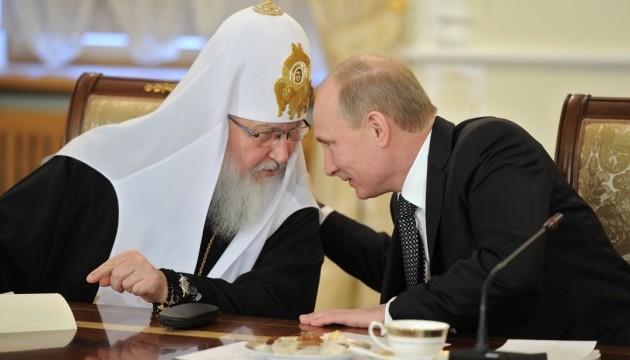
The Russian culturologist Yampolsky said that Russian propaganda is effective because the Russians want to believe in it. Do you agree?
Any propaganda is only effective when people want to believe in it. If you start propagandizing something that is opposite to what the people want, this will be a mistake of the mass media. Of course, they want to believe it. The propaganda is designed for the Soviet mentality, which remains to a large extent, and that is why it is effective. And the younger generation thinks in a different way, which is why it doesn't affect them.
Read also: The country of triumphant resentment: Yampolskiy on Russia’s loss of reality
Right now we see that a significant role in this propaganda and the concept of the "Russian world" is played by the Orthodox Church. Here in Ukraine, the Ukrainian Orthodox Church of the Moscow Patriarchate is considered to be an agent of the Kremlin. Why is it so, and why are Christians permitting this?
We must discriminate between the Church as the Body of Christ and the Church as an administrative structure. The administrative structure - yes, it is Soviet. It was also formed during Soviet times - recall Stalin's famous meeting with the three Metropolitans on 4 September 1943, when the creation of the Soviet Church was initiated. And we know all those letters, that praise to Stalin. But these are administrative actions of the clergymen because everyone that didn't want to do this was killed by that time or died in the concentration camps. This is why the Church became not the opponent but the collaborator of the communist authorities. In this it differs from the Catholic Church immensely, the center of which was in Rome and inaccessible [to the authorities of the Eastern Bloc nations - ed], and any Roman Catholic bishop would say "What can I do? I have an order from Rome, I am not a free man." And in this sense, the Catholic Church always remained freer than the Lutheran and Orthodox Churches.
Read also: Stalin and the Russian Orthodox Church
Right now the same continues. After a brief period of freedom, on which the Church almost choked, the clergy returned once again into their usual framework, but with totally different relations. These are not Soviet relations, which were when the Church was a Department of the State, which the authorities used. Now the Church is not a Department. The government does not interfere in its internal affairs, does not appoint the bishops. And the Patriarch Aleksiy I in the 1960s complained that 9 bishops out of 10 were appointed by the KGB.
Now it is not like this. The Church is leaned upon as an ideological base. Putin's regime needs the Church no less than the Church needs Putin's state. And the Church needs it to solve its material issues. But the majority of people don't go to Church for this. In Communion, they are connected with Christ and not the Patriarch. They pray for the Patriarch as he is a sinner just like them. And in this way, the political component of the Church is not absolute. Which is why many in Ukraine choose the Moscow Patriarchate not connecting it with a political position. For example, in the same Volyn, where the Ukrainian church identity is supported quite a lot, but for different reasons, people don't switch to other Orthodox confessions.
Read also:
- Andrey Zubov: Russians regret taking over Crimea, but haven’t repented yet
- Historian Andrey Zubov: Banderites are an example of the great lie of the Soviet system
- Kyiv University offers post to fired Russian historian
- Putin’s actions recall 1905. It’s path into abyss, Zubov says
- Professor Zubov: Ukraine unwillingly playing role of grave digger for Putin’s regime
- Stalin was a greater fascist than Bandera or Mussolini


